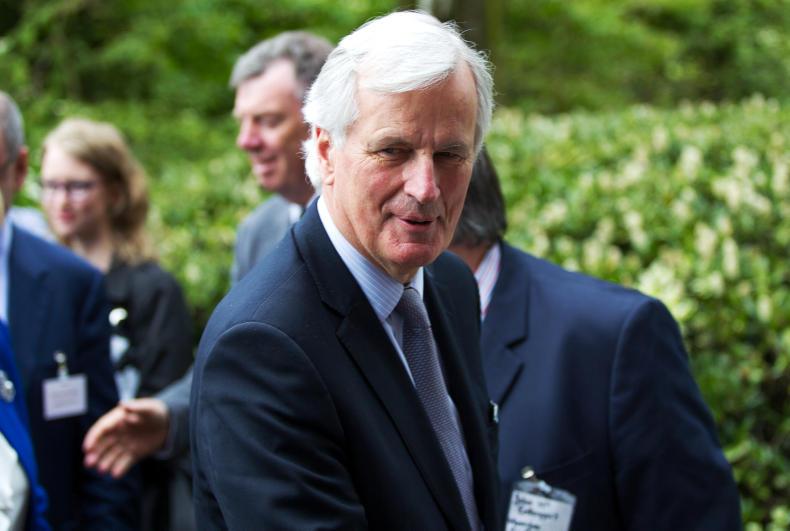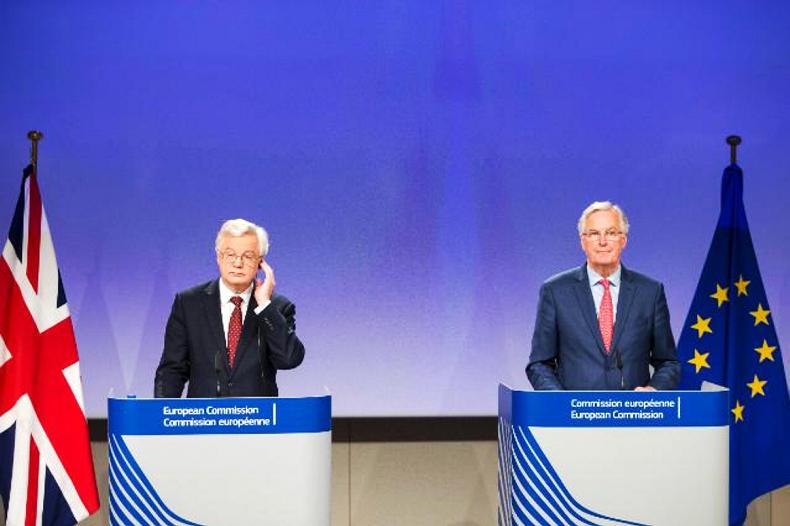The strain and stalemate between the UK and the EU reached its highest point this week, but there would appear to be a cooling of tensions between the two.
There was a stand off in Brussels on Thursday, after the press briefing from Michel Barnier and David Davies – the lead negotiators for the EU and UK respectively.
While David Davies tried to be upbeat, Michel Barnier was categorical that sufficient progress had not been made to move to the next stage of negotiations.
Even the Brussels press corps were cranky, as four of the five questions taken were from the UK media and the fifth was also in English.
The continental media had a fair point with this gripe.
The protest was made forcefully in the subsequent, routine, midday press briefing and a Brexit stalemate appeared to be the order of the day.
EU preparations for Brexit
However, later in the day a “leak” emerged from the European Council – which is the ultimate policy setting part of the EU, made up of ministers and heads of state from the members.
Michel Barnier is from the European Commission, which is effectively the executive that puts Council policy into effect. His advice is that sufficient progress hasn’t been made to proceed.
Now a third way seems to be emerging that preserves the honour of the negotiation positions, but enables an image of progress to be given.
The “leak” from the Council is suggesting that the preparations should be made by the EU to proceed to the next stage, even if not ready to do so just now.
It is suggesting this on the basis that “considerable” progress has been made, though this isn’t the same as “sufficient” progress.
Sufficient progress
This is like a good cop-bad cop routine.
Michel Barnier is holding firm on sufficient progress on the three priorities of the Irish border, EU citizens’ rights and the divorce bill.
The council leak suggests that while this may be the case, they still should get ready for a time when progress is deemed to be sufficient and talks on the future trading relationship can begin.
A parallel can be drawn between this thinking and the UK Prime Minister’s Florence speech.
It didn’t say much that wasn’t already known, except perhaps accepting the principle that financial commitments to the EU would have to be honoured and two additional years of transition post Brexit would be helpful.
It was the conciliatory tone of the speech from Theresa May that provoked a generally positive response in Brussels to its sentiments, even if it lacked detail.
The indication from the Council is in many ways a quid pro quo.
It is sending the message to the UK, after a blunt assessment from the chief negotiator yesterday, that behind the scenes the EU was getting ready to talk future relations, but wasn’t in a position to do so at this minute.
Read more
Stalemate in Brexit negotiations
Brexit to hit Northern Ireland dairy farmers income
No physical infrastructure at the border post-Brexit
The strain and stalemate between the UK and the EU reached its highest point this week, but there would appear to be a cooling of tensions between the two.
There was a stand off in Brussels on Thursday, after the press briefing from Michel Barnier and David Davies – the lead negotiators for the EU and UK respectively.
While David Davies tried to be upbeat, Michel Barnier was categorical that sufficient progress had not been made to move to the next stage of negotiations.
Even the Brussels press corps were cranky, as four of the five questions taken were from the UK media and the fifth was also in English.
The continental media had a fair point with this gripe.
The protest was made forcefully in the subsequent, routine, midday press briefing and a Brexit stalemate appeared to be the order of the day.
EU preparations for Brexit
However, later in the day a “leak” emerged from the European Council – which is the ultimate policy setting part of the EU, made up of ministers and heads of state from the members.
Michel Barnier is from the European Commission, which is effectively the executive that puts Council policy into effect. His advice is that sufficient progress hasn’t been made to proceed.
Now a third way seems to be emerging that preserves the honour of the negotiation positions, but enables an image of progress to be given.
The “leak” from the Council is suggesting that the preparations should be made by the EU to proceed to the next stage, even if not ready to do so just now.
It is suggesting this on the basis that “considerable” progress has been made, though this isn’t the same as “sufficient” progress.
Sufficient progress
This is like a good cop-bad cop routine.
Michel Barnier is holding firm on sufficient progress on the three priorities of the Irish border, EU citizens’ rights and the divorce bill.
The council leak suggests that while this may be the case, they still should get ready for a time when progress is deemed to be sufficient and talks on the future trading relationship can begin.
A parallel can be drawn between this thinking and the UK Prime Minister’s Florence speech.
It didn’t say much that wasn’t already known, except perhaps accepting the principle that financial commitments to the EU would have to be honoured and two additional years of transition post Brexit would be helpful.
It was the conciliatory tone of the speech from Theresa May that provoked a generally positive response in Brussels to its sentiments, even if it lacked detail.
The indication from the Council is in many ways a quid pro quo.
It is sending the message to the UK, after a blunt assessment from the chief negotiator yesterday, that behind the scenes the EU was getting ready to talk future relations, but wasn’t in a position to do so at this minute.
Read more
Stalemate in Brexit negotiations
Brexit to hit Northern Ireland dairy farmers income
No physical infrastructure at the border post-Brexit










SHARING OPTIONS